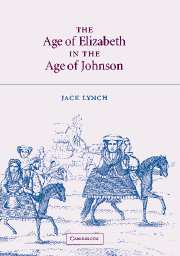Book contents
- Frontmatter
- Contents
- Preface
- Note on the texts and citation
- List of abbreviations
- Introduction
- 1 Struggling to emerge from barbarity: historiography and the idea of the classic
- 2 Learning's triumph: historicism and the spirit of the age
- 3 Call Britannia's glories back to view: Tudor history and Hanoverian historians
- 4 The rage of Reformation: religious controversy and political stability
- 5 The ground-work of stile: language and national identity
- 6 Studied barbarity: Jonson, Spenser, and the idea of progress
- 7 The last age: Renaissance lost
- Notes
- Bibliography
- Index
5 - The ground-work of stile: language and national identity
Published online by Cambridge University Press: 22 September 2009
- Frontmatter
- Contents
- Preface
- Note on the texts and citation
- List of abbreviations
- Introduction
- 1 Struggling to emerge from barbarity: historiography and the idea of the classic
- 2 Learning's triumph: historicism and the spirit of the age
- 3 Call Britannia's glories back to view: Tudor history and Hanoverian historians
- 4 The rage of Reformation: religious controversy and political stability
- 5 The ground-work of stile: language and national identity
- 6 Studied barbarity: Jonson, Spenser, and the idea of progress
- 7 The last age: Renaissance lost
- Notes
- Bibliography
- Index
Summary
“Every language,” writes Johnson in the Preface to the Dictionary, “has a time of rudeness antecedent to perfection, as well as of false refinement and declension.” This pair – rise and fall, refinement and declension– suggests a linguistic peak, which occupied many eighteenth-century minds eager to find a rule by which to regulate their language. Johnson's century marks the first concerted and systematic effort to discover a “standard” English, a search in which the language of the age of Elizabeth looms large. History often works its way into discussions of linguistic propriety, and linguistic propriety often works its way into discussions of national identity. This chapter explores the linguistic trajectory of refinement and declension by placing Johnson's comments on the history of the language in the context of other such statements from the fifteenth through the eighteenth centuries.
Two further sentences from the Preface to the Dictionary provide a starting point for the investigation. The first: “I have studiously endeavoured to collect examples and authorities from the writers before the restoration, whose works I regard as the wells of English undefiled, as the pure sources of genuine diction.” Johnson's concern is to justify his choice of illustrative quotations for his Dictionary – the first English dictionary to include them.
- Type
- Chapter
- Information
- The Age of Elizabeth in the Age of Johnson , pp. 97 - 119Publisher: Cambridge University PressPrint publication year: 2002

